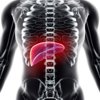Fritextsökning
Artiklar per år
Innehållstyper
-

Förlikning om canceranklagelser mot storsäljande läkemedel
Det franska läkemedelsbolaget Sanofi har nått en principöverenskommelse i USA om cirka 4 000 av de fall där företaget stämts för att inte ha varnat patienter om att det numera indragna läkemedlet Zantac mot halsbränna kan framkalla cancer.
-

Ny chefredaktör på Läkartidningen
Åsa Uhlin har utsetts till ny chefredaktör på Läkartidningen efter avgående Pär Sandell.
-

Radioactive tracer to measure effect of drug towards Crohn’s disease
A radioactive tracer developed by Astra Zeneca and the Karolinska Institutet may play a major role for patients with Crohn's disease. That is the belief of Maria Belvisi at AstraZeneca.
-

Jan Holmgren to receive award for the development of cholera vaccine
Researcher Jan Holmgren is being awarded for the development of the first effective drinkable cholera vaccine. The award is given by the International Vaccine Institute (IVI) and vaccine company SK bioscience.
-

The life science strategy – what the industry wants
The process of updating the national life science strategy has begun at the government’s life science office. According to industry stakeholders, Sweden’s competitiveness, the accessibility of health data and the integration of innovation in healthcare are some of the points that are essential to review.
-

”We need compatibility“
Penilla Gunther, founder of Fokus Patient and chair of the European Patient Safety Foundation, hopes that the forthcoming life science strategy will focus on efficient and secure management of patient data and equal access to medicines.
-

Nya råd om ryggmärgsstimulering: Använd bara när annat inte hjälper
Elektrisk stimulering av ryggmärgen kan användas mot långvarig smärta – men enbart i de fall konventionell smärtbehandling inte hjälper. Så lyder en ny rekommendation från MTP-rådet.
-

Anna Törner: ”Orphan Designation – the "petite robe noire" of drug development”
It is easy to cling to various regulatory incentives, like orphan designation, and other expedited pathways, without understanding what they truly mean or whether they are indeed right (or wrong) for the current project, Anna Törner writes in a column.
-

Specific proposals and targets top the universities’ desired priorities
What are the universities’ expectations for the update of the national life science strategy? Life Science Sweden posed the question to representatives from Karolinska Institutet and Sahlgrenska Academy.
-

Första behandlingen mot vanlig leversjukdom godkänd i USA
Efter många år av utveckling har nu för första gången en behandling mot fettlever med leverskada godkänts av det amerikanska läkemedelsverket FDA.
-

KI-forskare fälls för oredlighet efter felaktiga bilder
Fyra forskare med koppling till Karolinska institutet fälls för oredlighet i forskning, enligt ett beslut från NPOF, Nämnden för prövning av oredlighet i forskning.
-

Venom from the deathstalker carries radiopharmaceuticals to the brain
In order to target cancerous brain tumours with radionuclides, the problematic blood-brain barrier must first be crossed. Life Science Sweden has visited a KI researcher who is trialling an unusual approach ‒ using scorpion venom.
-

“Life science is important on a personal level”
From the High Coast to the Government Offices. Jeanette Edblad is a native of Ångermanland, and since September last year, she has been Head and Coordinator of the Government’s Life Science Office.
-

TLV:s system igång efter hackerattack – men data har förlorats
TLV börjar får ordning på sina it-system igen efter den allvarliga hackerattacken i slutet av januari. Men alla data går inte att återställa.
-

”Om vi ska vara en ledande life science-nation måste vi arbeta tillsammans”
Från Höga kusten till Regeringskansliet. Jeanette Edblad är ångermanlänningen som sedan september i fjol är chef och samordnare för regeringens life science-kontor.
-

Samuel Lagercrantz: ”Will the Swedish life science strategy be updated with precision?”
What will the Swedish government focus on in the life science strategy that is being updated? And what should be prioritized in the strategy? Life Science Sweden's editor-in-chief Samuel Lagercrantz highlights three areas.
-

Prismiljoner till forskning om TBE och bakterieätande virus
TBE-virusets väg till hjärnan och bakteriofager som alternativ till antibiotika hör till de forskningsfält som premieras när sammanlagt 33 miljoner kronor tilldelas fem yngre forskare i Sverige.
-

From Valneva to the CEO position at NorthX – “I saw it as a great opportunity”
A new cell therapy for leukaemia, a vaccine in tablet form against cholera, and a proprietary mRNA line with the potential capacity to supply the entire Nordic region with vaccines during a future pandemic. These are some of the projects underway
-

Doktorand fick tuberkulos efter olycka på KI:s säkerhetslabb
En doktorand som arbetade med bakterier på Karolinska institutets säkerhetslaboratorium tros ha smittats med tuberkulos i samband med en olycka.
-

Marie Gårdmark: ”Interchangeable biological medicines – soon in a pharmacy near you?”
”Generic competition is an effective way to push down drug prices, but it has not worked equally well for biosimilars. Biosimilars require more time to gain market share compared to generics, and new biosimilars do not always lead to lower prices” writes
-

“Don’t postpone the transition to IVDR”
Operators who have not yet started to adapt to the requirements of the new EU IVDR regulation are running out of excuses. This is the opinion of Helena Dzojic, Head of Unit at the Swedish Medical Products Agency, who continues to persistently spread her
-

To build trust, one must be able to say “I don’t know” – whether human or AI
Will AI strengthen or break down trust? It depends on whether we can understand and accept its limitations, and our own, writes Sarah Lidé in a column.
-

WHO varnar för risk för mässlingsutbrott i flera länder
Fall av mässlingen ökar kraftigt. Nu varnar Världshälsoorganisationen, WHO, att det finns en hög risk för mässlingsutbrott i flera delar av världen om förebyggande åtgärder inte tas, rapporterar Reuters.
-

Fuskande tredjepartslabb en ”alarmerande trend” enligt FDA
Allt fler medtech-bolag förlitar sig på data från tredjepartslabb som visar sig vara påhittade eller duplicerade från tidigare studier, varnar den amerikanska läkemedelsmyndigheten FDA.